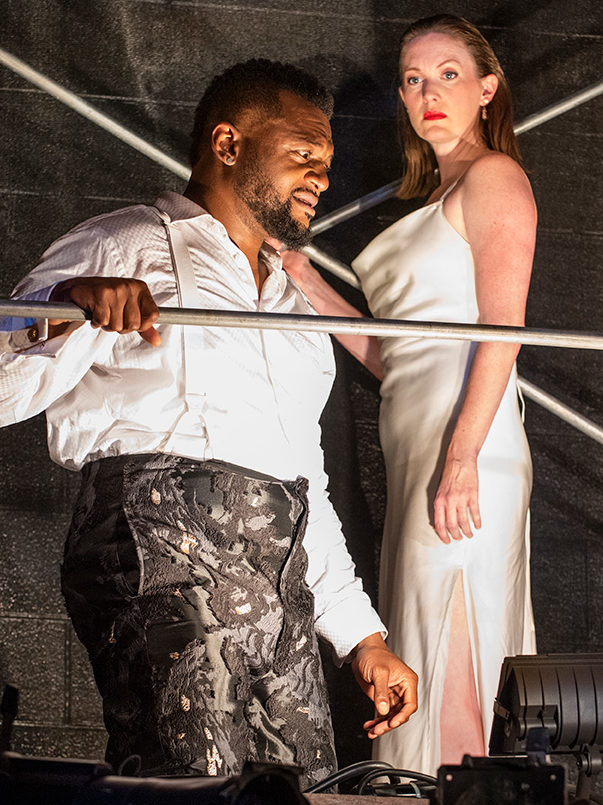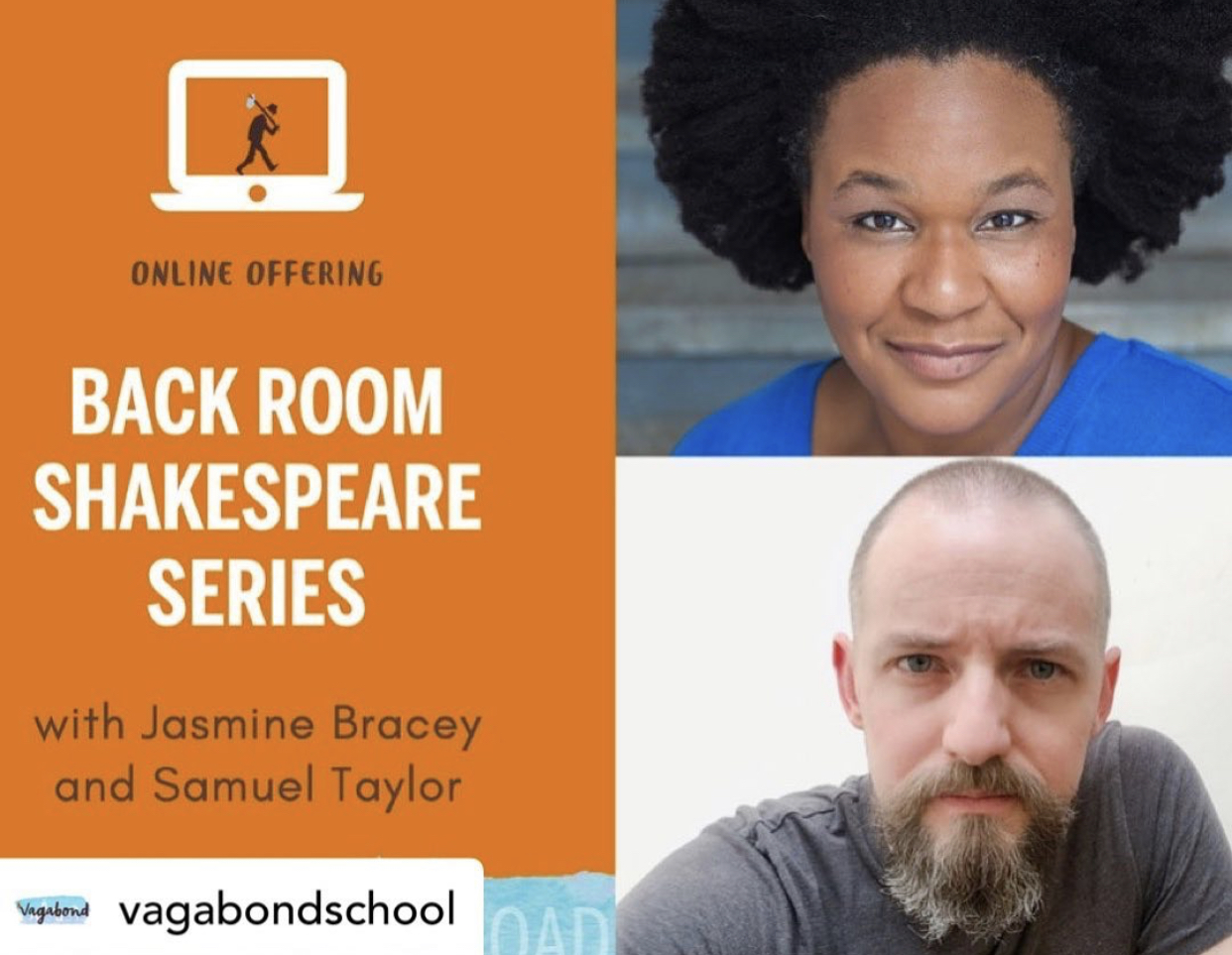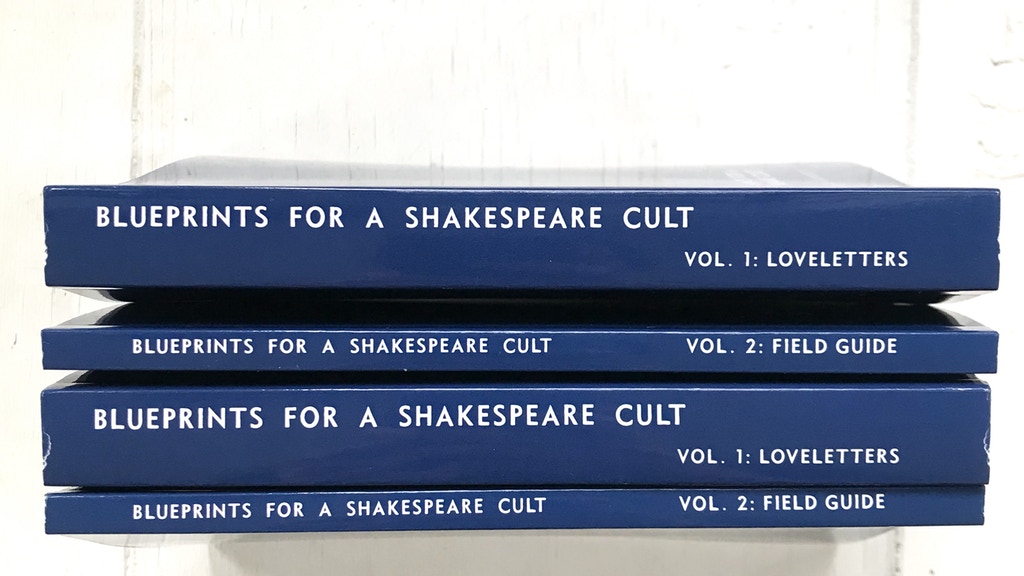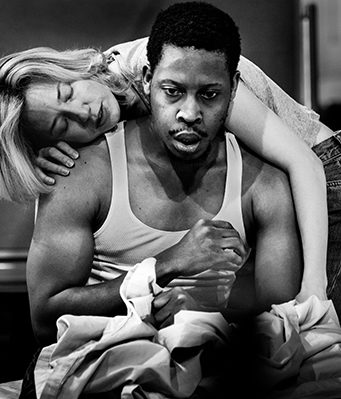Amanda Drinkall’s Desdemona(s)
Amanda Drinkall plays Desdemona in Othello, The Tragedy of the Moor of Venice, at the Court Theater in Chicago – and, as it happens, she’s also played Desdemona before with the Back Room Shakespeare Project. Amanda discusses the differences between the two productions and reveals why she continues to be drawn to the role; the appeal of approaching the text irreverently; the advantages of intimacy; further attempts to make #TheatreInTheSurround happen; the question of whether Desdemona is a victim; how we see her through Othello’s eyes; how Desdemona is like other Shakespeare heroines like Juliet and Viola; and the importance of grounding tragedy in fierce love. (Length 17:25) (PICTURED: Kelvin Roston, Jr. and Amanda Drinkall in the Court Theatre production of Othello, The Tragedy of the Moor of Venice, directed by Charles Newell and Gabrielle Randle-Bent. Photo by Michael Brosilow.)
Podcast: Download (20.0MB)



